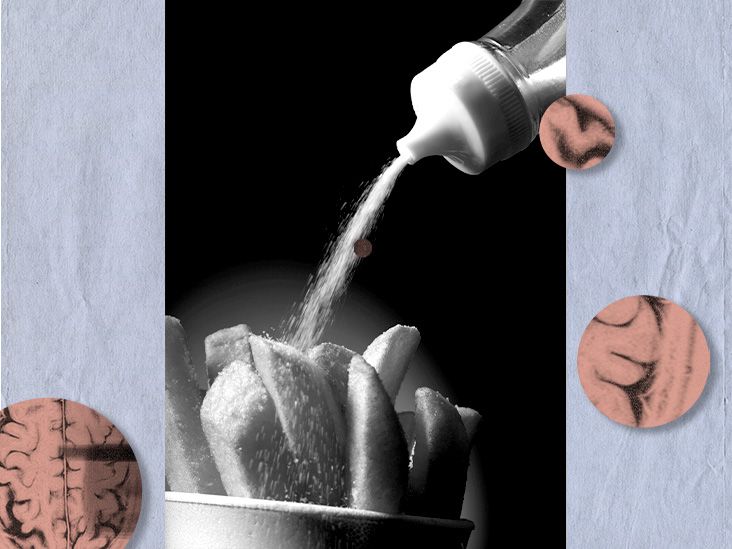Vaginal burning can sometimes occur after sexual intercourse. It can result from friction, a vaginal tear, an allergy, an infection, or other health conditions.
Most causes of vaginal burning after sex are temporary or treatable.
This article will look at the possible causes of vaginal burning and some ways to prevent this unpleasant sensation.

Image credit: Lena Mirisola/Getty Images
There are a few possible causes of vaginal burning after sex. The sections below will discuss these in more detail.
Friction
Friction can occur during sex, which if excessive, may result in a burning sensation afterwards. This could occur as a result of:
- rough sex
- having penetrative sex for a long time
- not enough lubrication
Persistent vaginal dryness or discomfort can sometimes be a result of an underlying medical condition or menopause.
Allergies
Some people have allergies to products people use during sex, such as latex condoms, spermicides, or lubricants. People can also have allergies to hygiene products, and in rare cases, to sperm itself.
Potential signs of an allergy include:
- swelling
- pain
- itchiness
- burning sensation
Yeast infection
Yeast infections, or vaginal candidiasis, can occur if there is an overgrowth of yeast in the vagina. The symptoms can include:
- vaginal soreness or itchiness
- thick vaginal discharge that resembles cottage cheese
- painful sex
- painful urinating
Anyone can have a yeast infection, but it is
- are pregnant
- have diabetes
- use hormonal birth control
- are taking or have taken a course of antibiotics
- have a weakened immune system
Urinary tract infections
Urinary tract infections (UTIs) are a common condition that occur when bacteria enter the urinary tract. This can happen for several reasons, with risk factors including:
- sexual activity
- age
- pregnancy
- irregular urinary tract anatomy
- previous UTIs
- difficulty with hygiene
- menopause
Symptoms of a UTI can include:
- burning or pain when urinating
- a strong urge to urinate but producing little or no urine
- frequent urination
- blood in the urine
Bacterial vaginosis
Bacterial vaginosis (BV) is an infection that occurs when there is an imbalance of microbes in the vagina. Experts do not know exactly how it develops, but the risk factors
- having new or multiple sexual partners
- not using condoms
- douching
The symptoms of BV include:
- vaginal discharge that is white or gray
- a strong odor that may smell fishy, especially after sex
- vaginal itching, pain, or burning
- burning while urinating
Sexually transmitted infections
There are several sexually transmitted infections (STIs) that may cause vaginal burning after sex. Some of these include:
STIs spread when a person has sex without a condom with someone who already has an infection.
Menopause
As females enter menopause, hormonal changes can affect the vagina. This shift can cause the vagina to become drier, thinner, and to lose elasticity.
This is known as vulvovaginal atrophy. Since there is less lubrication and the vaginal tissues are more fragile, tearing can occur. This tearing can potentially lead to a burning sensation after sex.
Vulvodynia
Vulvodynia is a painful condition that affects the vulva. Symptoms include:
- burning
- stinging
- irritation
- throbbing
- swelling
It can occur for a few reasons, including:
- damage or irritation of the nerves of the vulva
- infection
- genetic conditions
- inflammation of the vulva
- food sensitivities
- weak pelvic floor muscles
Skin conditions
Certain skin conditions, such as lichen sclerosus and lichen planus, can affect the skin outside the vagina. If the skin becomes irritated or raw, it can cause a painful burning sensation.
Vulvar cancer
In very rare cases, a burning sensation after sex may be due to vulvar cancer.
According to the American Cancer Society,
Symptoms of this cancer
- itching
- pain or burning
- bleeding or discharge that is not due to menstruation
- skin changes around the vulva, including discoloration or thickening
- sores that do not heal
The treatments for vaginal burning after sex will vary depending on the underlying cause. For example:
- Friction: If the cause is friction due to the type or duration of sex a person is having, changing things up may help. They can talk with their partner about adjusting the speed or roughness, or alternating between different types of sexual activity more often.
- Dryness: If the cause is a lack of lubrication, it may help to spend more time on foreplay or things that create arousal. Using extra lubricant is also helpful for many people. However, persistent dryness may require more tailored treatment, particularly if it is a result of menopause.
- Allergies: Treatment with allergies involves identifying the allergen and avoiding it, if possible. For example, people with latex allergies can switch to latex-free condoms. Antihistamines may also help to reduce symptoms after a reaction.
- Infections: Infections such as STIs, UTIs, BV, and yeast infections usually require a course of antibiotics, antiprotozoals, antifungals, or another medication. Some of these products, such as yeast infection treatments, are available over-the-counter.
- Vulvodynia: Because the exact cause of vulvodynia is unknown, treatment aims to alleviate the symptoms. Treatment may include antidepressants or anticonvulsants that also treat pain. Other solutions include creams, lotions, and anesthetic gels for applying to the vulva.
- Skin conditions: To alleviate the symptoms of skin conditions, people may need to apply a steroid cream or ointment directly to the affected area. This may help reduce itching, soreness, or scarring.
- Cancer: For vulvar cancer, treatments may include surgery, chemotherapy, radiation therapy, and biologic therapy.
Preventing the conditions that can cause vaginal burning is not always possible, but generally, it can help to:
- make sure a person is fully aroused before sex, such as by engaging in more foreplay
- using additional lubricant during sex
- communicating honestly about anything that feels uncomfortable or painful
It is also important to follow practices for vaginal health, such as:
- using barrier methods of contraception to prevent STIs, such as condoms
- washing any reusable items, such as sex toys, menstrual cups, or diaphragms after every use
- washing the hands before touching the genitals
- not douching or cleaning the inside of the vagina
- not using scented hygiene or period products
- wiping the genitals and anus from front to back
- using period products as per instructions and changing them regularly
- wearing breathable, cotton underwear
- staying hydrated
- only take antibiotics when necessary, as they can affect vaginal flora
The vagina is a self-cleaning organ. People
A person should contact a doctor if they experience vaginal burning that does not go away, gets worse, or that often occurs after sex, even with changes to make sex more comfortable. A doctor can provide a diagnosis and select the right course of treatment.
Vaginal burning can sometimes be a symptom of a more serious condition. Seek medical attention promptly if a person notices:
- lumps, sores, or mole-like growths that do not go away or get bigger
- raised, thickened, or discolored patches of skin
- unusual bleeding between periods
People should ensure that they test for STIs before engaging in any form of sexual activity.
Vaginal burning after sex can have many causes, including vigorous sex, lack of lubrication, allergies, and infections. Many causes of vaginal burning are treatable, but it is important to have the right diagnosis first so that a doctor can recommend the best approach.
People with persistent burning, itchiness, unusual discharge, or any other changes in their vaginal health should speak with a medical professional.


